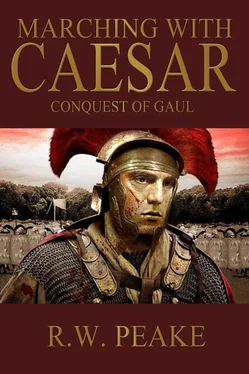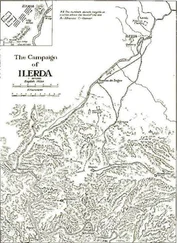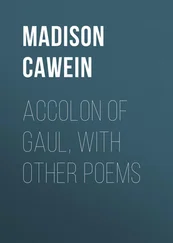R. Peake - Marching With Caesar - Conquest of Gaul
Здесь есть возможность читать онлайн «R. Peake - Marching With Caesar - Conquest of Gaul» весь текст электронной книги совершенно бесплатно (целиком полную версию без сокращений). В некоторых случаях можно слушать аудио, скачать через торрент в формате fb2 и присутствует краткое содержание. Жанр: Исторические приключения, на английском языке. Описание произведения, (предисловие) а так же отзывы посетителей доступны на портале библиотеки ЛибКат.
- Название:Marching With Caesar: Conquest of Gaul
- Автор:
- Жанр:
- Год:неизвестен
- ISBN:нет данных
- Рейтинг книги:3 / 5. Голосов: 1
-
Избранное:Добавить в избранное
- Отзывы:
-
Ваша оценка:
- 60
- 1
- 2
- 3
- 4
- 5
Marching With Caesar: Conquest of Gaul: краткое содержание, описание и аннотация
Предлагаем к чтению аннотацию, описание, краткое содержание или предисловие (зависит от того, что написал сам автор книги «Marching With Caesar: Conquest of Gaul»). Если вы не нашли необходимую информацию о книге — напишите в комментариях, мы постараемся отыскать её.
Marching With Caesar: Conquest of Gaul — читать онлайн бесплатно полную книгу (весь текст) целиком
Ниже представлен текст книги, разбитый по страницам. Система сохранения места последней прочитанной страницы, позволяет с удобством читать онлайн бесплатно книгу «Marching With Caesar: Conquest of Gaul», без необходимости каждый раз заново искать на чём Вы остановились. Поставьте закладку, и сможете в любой момент перейти на страницу, на которой закончили чтение.
Интервал:
Закладка:
There was also a change that impacted our entire Century, however, coming about as a result of the sickness that had hit the army. Not just ordinary Gregarii were struck down, and because of the death of a Centurion in the First Cohort, Pilus Prior Crastinus was promoted to the First Cohort, and was now the Primus Hastatus Posterior, the Centurion of the Sixth Century. In those days, whenever there was a vacancy in other Centuries in a more senior Century or Cohort, the normal procedure was that the Centurion in the next most junior Century moved up one slot. Therefore, the Primus Princeps Posterior, the Centurion of the Fifth Century of the First Cohort, who was the man who died, was replaced by the Primus Hastatus Posterior, with our Pilus Prior moving up to the Sixth Century to replace the Centurion moving up. For us, this meant that the Secundus Pilus Posterior now became our Pilus Prior. His name was Aulus Vetruvius, and he was competent enough, yet I would be lying if I said that we felt the same towards him that we did for Pilus Prior Crastinus. To be fair, Vetruvius was in a very tough situation filling his predecessor’s boots, a fact that Rufio kept reminding us about. For his part, Rufio at least was staying put, since he had not been Optio long enough to be considered for one of the junior Centurion spots in the Tenth Cohort. Being selfish, that was fine with all of us, because it was difficult to adjust to the styles of two new officers. Tesseraurius Cordus left us as well, being promoted to Optio of the Sixth Century in the Tenth Cohort, but our Signifer Scaevola also remained with us. Although he technically should have been considered for one of the Centurion slots in the more junior Cohorts, Scaevola was one of those men who, despite being a great fighter and a solid man to have relaying orders, had not developed into the leader that was expected of a Centurion. Even so, I could think of no man besides Vibius who I wanted pressed against my back should things go badly in battle. And courtesy of the Helvetii, Caesar handed us a war that would go down in the annals as one of the greatest feat of arms in the history of Rome.
Caesar ordered the 7th, 8th and 9th to prepare to march from their base in Aquileia, planning on sending them northwest towards the Helvetii. By the time one of Caesar’s Tribunes arrived in our camp, we were well into the packing up of all that would be required for the upcoming campaign, Caesar having sent word ahead that we were needed. Interspersed with all the various tasks to be done, the Centurions increased the pace of our training, having us go on twice as many forced marches as normal, with the difference being that the two extra were half-day affairs so that we could still do all of the other things that had to be done to prepare to move. For example, our artillery had to be refitted with new torsion ropes, with every other piece of equipment having to be inspected for wear; even in garrison, equipment suffers wear and tear just through our constant training. And truth be told, there is a huge difference between having everything adequate for training purposes and for going to war. Vibius stayed busy repairing or making new bits of leather gear, while I pushed the men of the Century harder than ever during our weapons training, making sure that nobody left the training field without fresh bruises and cuts, myself included. No matter how hard I pushed them, nobody except Didius and a couple other men like him in other sections complained, since everyone knew by this time that more work put in here meant the better chance of seeing another sunrise after a battle. Once more we prepared to leave camp to go on campaign, except this time was more difficult for a lot of the men. Now that they had set down some roots and were starting families, it was all that much harder to leave them behind, which is why a good number of their women and small children refused to be left. The day we formed up in the forum of the camp to begin the march north to face the Helvetii, there was a second, albeit smaller and worse equipped army waiting immediately outside the gates.
(Diocles: To ensure accuracy, my Master has instructed me to use Caesar’s account of the campaigns against the Gauls to provide the relevant facts and dates that are crucial to his account of his experiences with Caesar.)
The whole problem with the Helvetii started because they had decided to move from their homes to find new places to live. One difficulty posed by this idea was that the place they were interested in moving to already had people in it, and they were people that we were told had asked for Roman protection. The Helvetii had already begun the process of migrating, burning their own towns, farms and fields in order to ensure that they would not lose heart and turn back. The other consequence of this decision was that they were not liable to be persuaded, either by reason or force, a fact that we would soon discover when we faced them. First, however, we had some distance to cover to face them; being honest, the first three or four days marching at the pace Caesar had ordered was almost enough to do almost all of us in, and I was just as exhausted at the end of the day as the rest of my comrades, barely having the energy to speculate about what we were marching into as we listlessly chewed our evening meal. One of the more valuable lessons I took from this experience was that, no matter how hard you may train in garrison, there is still a large gap between the type of fitness and endurance that the army tries to maintain in peacetime, and what is needed to survive and thrive during a campaign season. Some of the hardest hit were the immunes who were excused from normal training duties, the result being that they were in even poorer condition than the rest of us. Poor Vibius looked more dead than alive at the end of the first day’s march, as I literally had to force him to eat his meal, shoving his bread down his throat and commanding him to chew. I am convinced that even as he complied, he was asleep while doing so, and was only marginally improved the next day. Regardless, he did not fall out as a straggler, ending every day’s march with the rest of us, for which I was very proud of him.
The country we were introduced to was different than anything I had ever seen in my life. Even in the far north of Hispania, the land is not nearly as lush and green as what we passed through. These provinces were prosperous and peaceful, with everyone giving us a cheerful greeting and a wave as we passed by, the only exception to this being men with daughters, who despite their best efforts would lose some of them to the allure of the Legion tramping by. It never failed that people, not just girls but young boys and some men as well, would attach themselves to our column as we moved, using the Legion in the same manner one would hitch a ride on a bypassing cart to take them somewhere else. For our part, this would engender endless speculation on the motives of these people. Not so much with the boys, it being a foregone conclusion to us that they were lured by the romance of life as a Legionary, a fact at which we all heartily laughed, conveniently ignoring the fact that for many of us, it was the same siren call we had heard. Such is the easy disdain those on the inside show for those on the outside of something like the army. However, for the girls and women who joined the camp followers it was harder to understand, but their actions helped pass many watches spent on the road as we discussed the topic. Not that we were complaining, since almost all of these women either became the women of formerly unattached Legionaries at best, or whores servicing the rest of us at worst.
Fortunately, much of the march was on good Roman roads, so our progress was rapid, although to hear the cursing it was hard to tell. As we had experienced and would learn until it was ingrained as an expectation that we had for ourselves, nothing was fast enough for Caesar. If we marched 28 miles in a day, it should have been 30; if 30 then it should have been 35 miles. Despite learning this was his nature, some of us never grew accustomed to it, and one of them was Vibius.
Читать дальшеИнтервал:
Закладка:
Похожие книги на «Marching With Caesar: Conquest of Gaul»
Представляем Вашему вниманию похожие книги на «Marching With Caesar: Conquest of Gaul» списком для выбора. Мы отобрали схожую по названию и смыслу литературу в надежде предоставить читателям больше вариантов отыскать новые, интересные, ещё непрочитанные произведения.
Обсуждение, отзывы о книге «Marching With Caesar: Conquest of Gaul» и просто собственные мнения читателей. Оставьте ваши комментарии, напишите, что Вы думаете о произведении, его смысле или главных героях. Укажите что конкретно понравилось, а что нет, и почему Вы так считаете.












